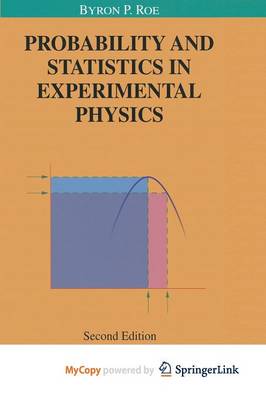Undergraduate Texts in Contemporary Physics
1 total work
This work is a practical introduction to the use of probability and statistics in experimental physics for graduate students and advanced undergraduates. It is intended as a practical guide, not a comprehensive text in probability and statistics. The emphasis is on applications and understanding, on theorems and techniques that are actually used in experimental physics. Proofs of theorems are generally omitted unless they contribute to the intuition in understanding and applying the theorem. The problems, some with worked solutions, introduce the student to the use of computers; occasional references made to some of the FORTRAN routines available in the CERN library, but other systems, such as Maple, will also be useful.
Topics covered include: basic concepts and definitions; general results, independent of specific distrubutions; discrete distributions; the normal distribution and other continuous distributions; generating and characteristic functions; the Monte Carlo method and computer simulations; multi-dimensional distributions; the central limit theorem; inverse probability and confidence limits; estimation methods; curve fitting, robustness estimates, and likelihood ratios; interpolating functions and unfolding problems; fitting data with constraints; and robust estimation methods.
Topics covered include: basic concepts and definitions; general results, independent of specific distrubutions; discrete distributions; the normal distribution and other continuous distributions; generating and characteristic functions; the Monte Carlo method and computer simulations; multi-dimensional distributions; the central limit theorem; inverse probability and confidence limits; estimation methods; curve fitting, robustness estimates, and likelihood ratios; interpolating functions and unfolding problems; fitting data with constraints; and robust estimation methods.
